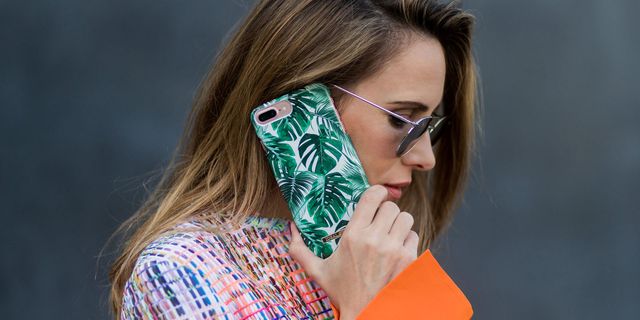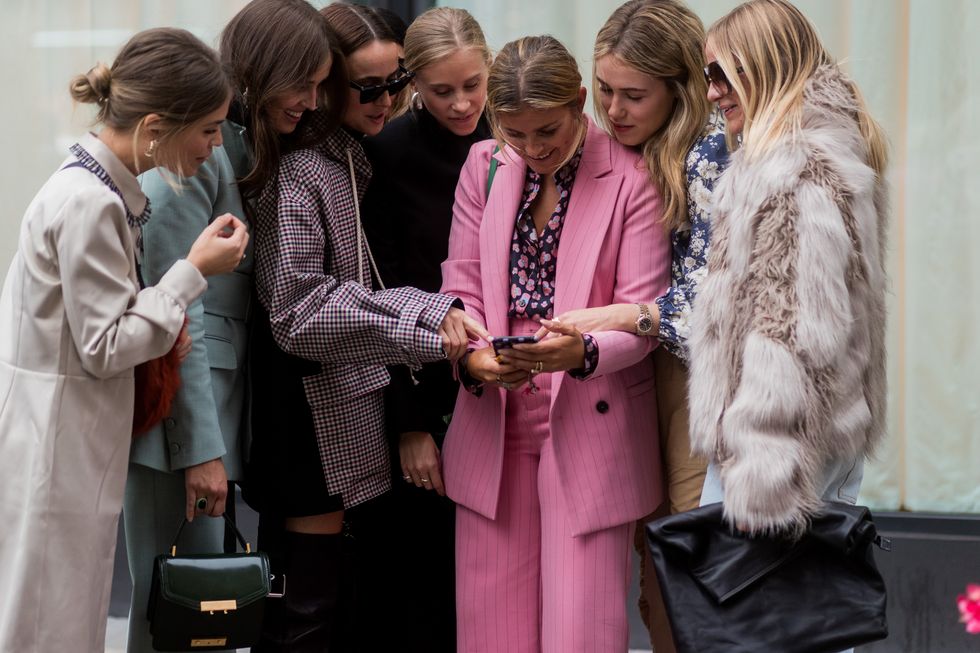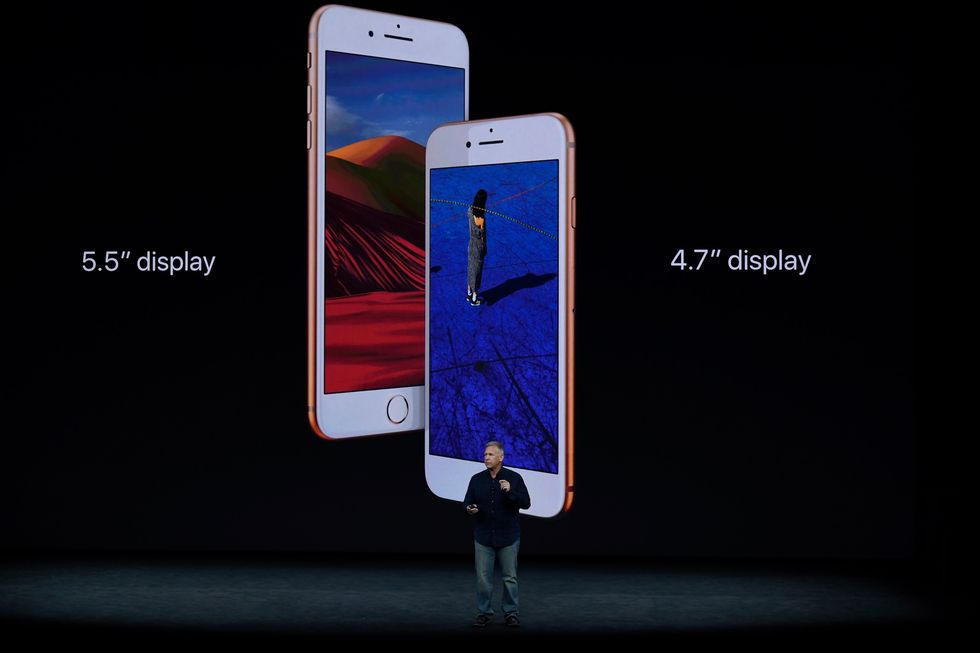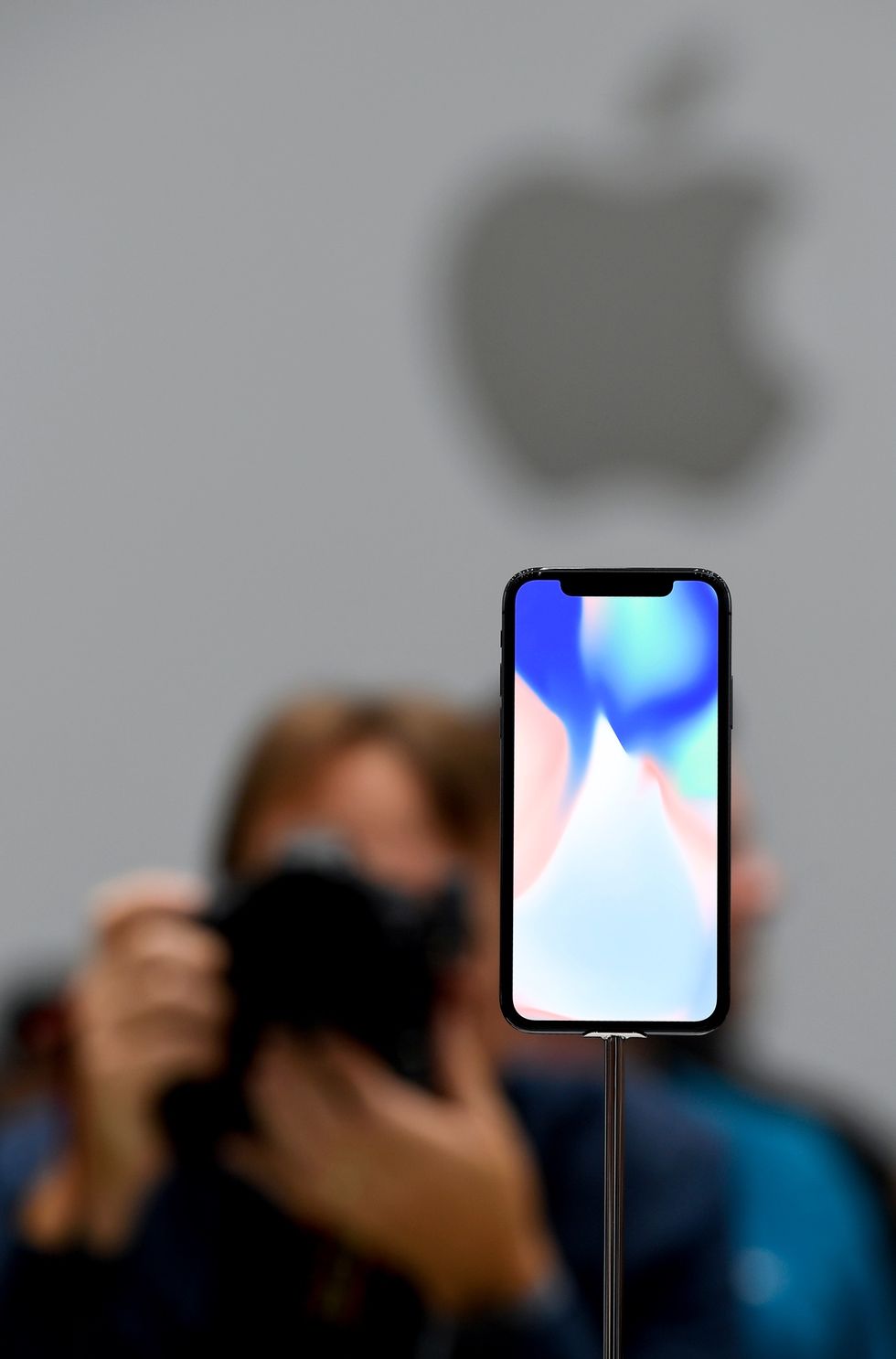Apple has just unveiled its most expensive mobile phone yet, the iPhone X.
And while the thought of purchasing yet another swanky new iPhone does make our eyes roll slightly, we must admit, we were intrigued to learn the new phone - nicknamed 'The Ten' - uses a feature-based facial recognition system to unlock the device, rather the traditional fingerprint scanner, 'TouchID'.
Apple claims the new recognition software, known in tech circles now as 'FaceID', uses 30,000 infra-red dots to check an identity and can even work in the dark, reports the BBC.
The system works thanks to a high-resolution front-facing camera which forms a code to create a unique hash ID, which is then stored in a secure part of the iPhone.
Unlike TouchID, which has a one-in-50,000 chance of being unlocked by a stranger, the odds are a staggering one-in-1 million with FaceID, which sounds like a pretty safe bet when it comes to relieving concerns about hacking and user privacy, right?
Well, not exactly.
One major concern with the phone's FaceID is how easy it is for someone who isn't the owner to unlock a phone.
Will FaceID make it easier for strangers to unlock the phone?
When news hit of the new iPhone's facial recognition technology, our major concern was identity theft.
After all, if the new phone unlocks when it recognises an owner's face, what's to stop a hacker holding the phone up to the subject's face - or even a picture of their face - until they pass the FaceID scan?
At the Apple inaugural launch at the company's new Apple Park headquarters in Cupertino, California yesterday, executive Phil Schiller addressed these concerns and explained that lining someone else's face in a front-facing camera isn't as easy as it sounds.
However, it isn't technically impossible.
The Verge tested this theory out and found that it is possible to unlock a phone when the camera is slightly off-axis to the subject's face.
However, one good thing to come from the phone is the camera's new dual cameras and projected infrared dots which detect depth. As a result, the phone should be able to spot a 'false face' such as a mask or two dimensional image of a person's face.
Could a jealous partner open my phone while I'm sleeping?
According to Schiller, the facial recognition system requires the owner's full attention and eye contact to properly function. So, it's unlikely a jealous spouse could hover the phone over your face while you're sleeping to access your phone.
'If your eyes are closed, if it's not lined up, it's not going to work,' he explained.
However, whether this is a good enough way to avoid being forced to open your phone under duress by law enforcement, thieves, jealous partners is to be seen.
But, for owners with an identical twin, you might want to be careful.
Schiller noted the odds of hacking change for people attempting to open your phone who are genetically related to you.
Could my FaceID be hacked into on the Cloud?
Following the iCloud hacking scandals that saw private photos of the likes of Jennifer Lawrence, Kate Upton, and Kirsten Dunst shared online, iPhone users have raised concerns about the possibility of their facial identifications being leaked or stolen.
However, Apple has said that much in the same way TouchID fingerprint data remains on an owner's phone, the company won't send faceprint data to the Cloud and it will remain private. (That is, if you think anything can be private on technology these days.)
All processing is done on the phone device, so photos aren't sent or stored anywhere once the phone is unlocked.
Will the FaceID be able to recognise non-white faces?
Given facial recognition systems' long history with racial bias, some iPhone users are concerned as to whether the new model will be able to identify non-white faces.
As the Verge explains: 'As you might expect, algorithms trained on mostly white faces aren't as good at recognising people who are black, Chinese, or Indian, which translates to higher error rates and a worse product for specific groups of people.'
And while this has been a widespread problem among the technology industry for years, Schiller reassured users that the FaceID team took over a billion images to train the algorithms to learn how to recognise a wide range of ethnicities.
The new iPhone might be an exciting prospect for artificial intelligence, but we can't shake the feeling Apple's new facial recognition might be opening the door to a new kind of identity theft.
A 64 gigabyte capacity model will cost $999 (£999 in the UK) when it goes on sale on 3 November. A 256GB version will be priced at $1,149 (£1,149 in the UK).

Katie O'Malley is the Site Director on ELLE UK. On a daily basis you’ll find Katie managing all digital workflow, editing site, video and newsletter content, liaising with commercial and sales teams on new partnerships and deals (eg Nike, Tiffany & Co., Cartier etc), implementing new digital strategies and compiling in-depth data traffic, SEO and ecomm reports. In addition to appearing on the radio and on TV, as well as interviewing everyone from Oprah Winfrey to Rishi Sunak PM, Katie enjoys writing about lifestyle, culture, wellness, fitness, fashion, and more.

















